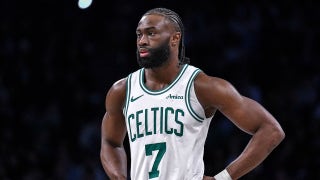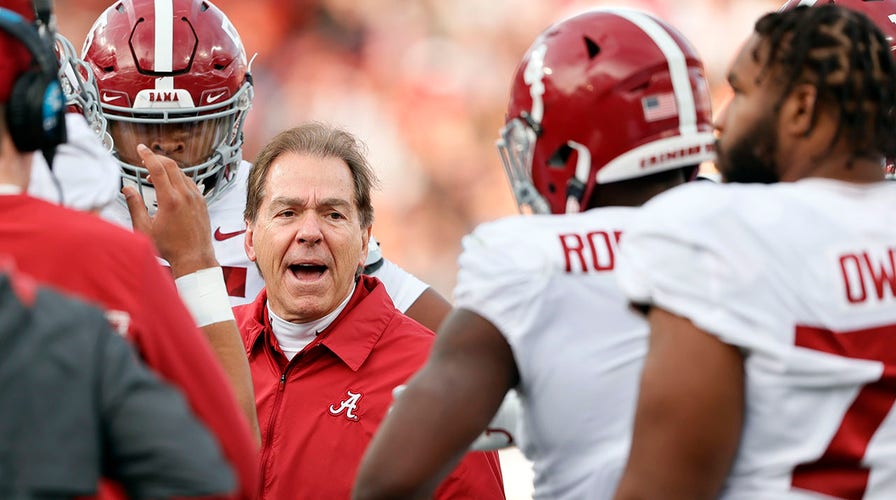Fox News Flash top headlines for February 4
Fox News Flash top headlines are here. Check out what's clicking on Foxnews.com.
They came from Pennsylvania, Texas and opposite sides of the state of Alabama.
Two are in their 40s. One is 50, and one is 70.
But the four head coaches who were at the Senior Bowl Summit here in front of 2,000 at the historic Saenger Theatre Tuesday night — Alabama’s Nick Saban, 70, Penn State’s James Franklin, 50, Texas’ Steve Sarkisian, 47, and Auburn’s Bryan Harsin, 45 — were in agreement throughout the night. They do not like where things are going in this new age of college football.
At least the Senior Bowl college football all-star and NFL draft showcase game, which kicks off at 2:30 p.m. Saturday at Hancock Whitney Statdium on the NFL Network, is basically the same as it has been here since it started in 1951.
CLICK HERE FOR MORE SPORTS COVERAGE ON FOXNEWS.COM
Saban, a defensive backs coach at heart, used to rail against the no-huddle offense. He demanded that offenses should not be allowed to snap the ball until 10 seconds elapsed on the 25-second play clock to help defenses get set. That rule idea was tabled in 2014, and Saban was forced to join them and hired Lane Kiffin to revolutionize his offense.
Ah, the 10-second rule. Those were such simpler times for Saban and other coaches amid today’s frenetically constant NCAA portal transfers along with money circulating to players like cryptocurrency with the new Name, Image and Likeness rules.
Conceptually, the portal and NIL make sense at face value — or made sense on paper. But both have been fraught with unintended consequences.
"Is this really what we want college football to be? I’m all for players making money," said Saban, who was the highest paid college football coach in the nation last season at $9.7 million.
"But I don’t think it ever should be a reason why a guy goes to a school because it almost promotes what we’ve never been able to do (legally), which was extra benefits to get a guy to a school," Saban said. "It shouldn’t be because this school is going to give me this much, and that school is going to give me that much, and we all have got to make a deal."
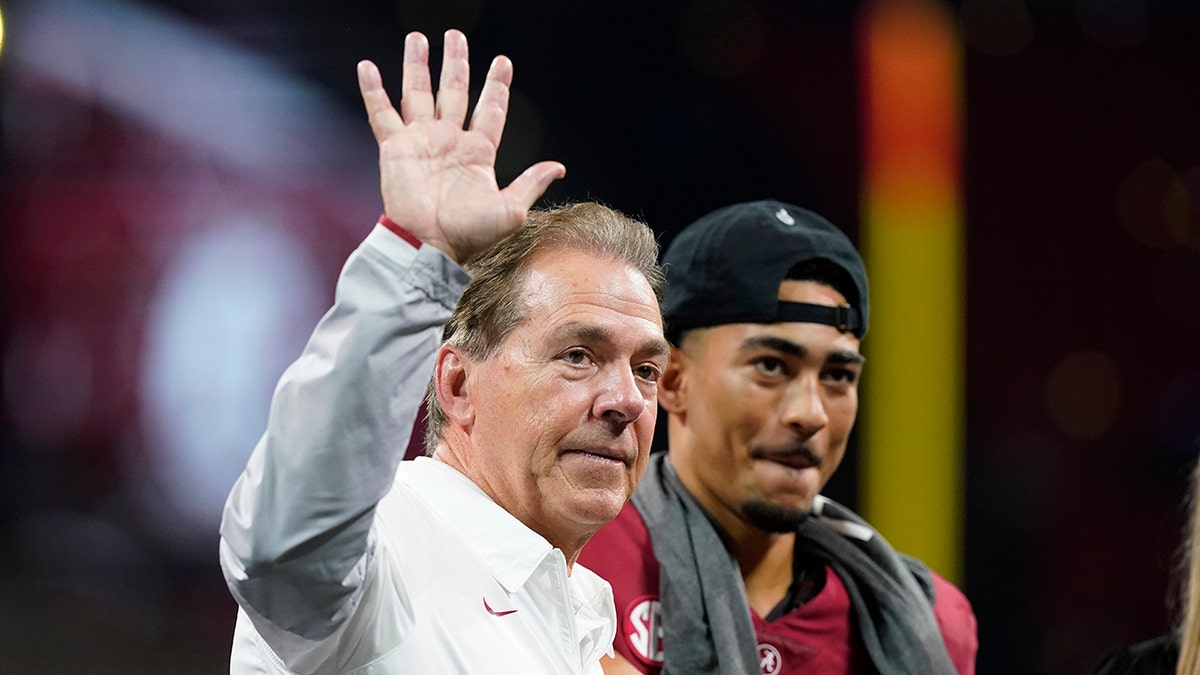
Alabama head coach Nick Saban waves to fans after the Southeastern Conference championship NCAA college football game between Georgia and Alabama, Saturday, Dec. 4, 2021, in Atlanta. Alabama won 41-24. (AP Photo/Brynn Anderson)
NIL legislation that was adopted across college campuses last summer allows for players to be paid through various marketing deals with companies from small sums of money up to large and lucrative packages, such as the one that has paid Alabama sophomore Heisman Trophy winning quarterback Bryce Young nearly $1 million.
Newly adopted NCAA rules say schools are not allowed to promise NIL deals to non-enrolled prospects. They have to wait until the prospect is enrolled, but they can communicate to the players the NIL deals that its current players have. This obvious gray area may be difficult to enforce.
Accusations have flown that Texas A&M promised packages in the millions of dollars to members of its 2022 signing class, which wrapped Wednesday as a consensus No. 1. Then coach Jimbo Fisher defended it like a crazed edge rusher.
Some schools have been more active than others as far as connecting various marketing companies to their players. But as far as Saban knows, that is not how it is being done at Alabama.
"I think all the players on our team who made money in name, image and likeness this year had representation on their own," he said the day after the summit. "And all those deals were created on their own based on their brand and what they did. There’s nobody at this institution that had anything to do with any of that."
Considering the number of marketing professionals working in college athletic departments across the country, it sounds like a reach to think none of them are lining up present or possible future athletes with companies for deals.
"These are the rules," Sarkisian said. "We have to play by them. But it has created unique challenges that we have not seen before. Everybody’s trying to navigate through it the best way they can. But there’s a slippery slope. I don’t think any of us really know where this is going to go. This is the world we’re in right now."
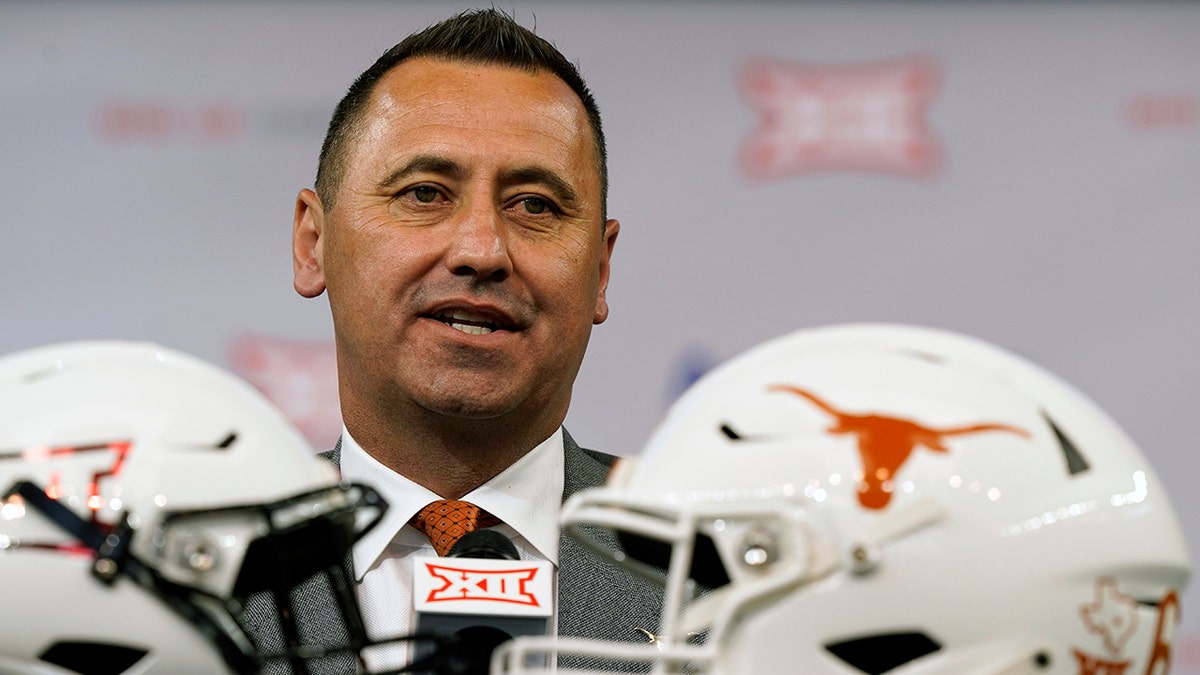
Texas head coach Steve Sarkisian speaks during the NCAA college football Big 12 media days Thursday, July 15, 2021, in Arlington, Texas. (AP Photo/LM Otero)
A world that now features new opportunities for agents, who used to find it more difficult to get to college athletes so they could one day sign them. Now, agents have connections to the very marketing companies paying college athletes through NIL.
"Agents are tied to the NIL deals that are tied to the marketing people that are tied to these guys when they’re in high school," Franklin said. "So it’s extremely challenging."
NIL also happened to come along right after COVID-19 forced the NCAA to relax transfer rules, which used to make athletes sit out a year in between transfers. They can play in consecutive years at different schools now.
"Here’s COVID. Here’s NIL, and here’s the transfer portal. Good luck, and that’s kind of where we’re at," Sarkisian said.
The transfer portal has been commonly referred to college football’s version of the NFL’s free agency. NFL free agency, though, is more strictly governed than that of the "amateur" game. NFL has a time window in the spring for free agency movement and a salary cap.
"The rules say you’re not supposed to recruit a kid until he gets in the portal," Sarkisian said. "But I think we can agree that there’s a lot of people on our rosters who are getting recruited who are not in the portal yet. And that’s the dangerous part — people recruiting your own players before they even want to get in the portal. And then enticing them with NIL opportunities down the road. I get the idea behind NIL, but a lot of times rules get made, and sometimes we don’t think about the consequences that arise from them down the road."
Another unintended consequence involves high school athletes. Suddenly, they’re not being recruited in droves as they were in the past — like last year — because football programs are now more interested in finding scholarships for transfers out of the portal. Instead of teams commonly having high school and junior college signees in the 20s, may schools signees numbered in the teens on signing day Wednesday.
"I think some people don’t realize that," Saban said. "So, we’ve actually created a situation because of the portal where young people are not getting the same kind of opportunities that they were able to get in the past. I don’t think that’s a good thing."
The worst part of the transfer portal to Saban, though, is it allows players to avoid, or put off, dealing with adversity, which is the path to improvement, maturity and success, he believes, as do the other three coaches.
"Now we have a situation where we don’t want anybody to fail, so we create an avenue to do something else if things get difficult," he said. "Yet, no one really can be successful in life if they can’t overcome adversity, because you’re always going to have adversity in life. So you almost have to fail to succeed in a lot of ways."
Applause broke out in the Saenger at this point.
Saban would like to see a study taken of the rash of tranfers this season.
"One thing that would be interesting is if we could figure out one year, three years, five years, 10 years down the road," he said. "Did these guys really benefit more from going some place else? Or would they have been better off to learn how to do what is very important in their life?"
Saban believes staying at one place longer could be more beneficial in the long run.
"So, if you’re going to do all the things that you need to do so you can be successful and not get frustrated with your circumstance, all right, then when you get a chance to play, you’re going to be able to take advantage of it," he said. "All right, and I think that’s what we lose."
And the player could lose something by leaving too quick.
"What is more beneficial when you’re 30 years old and you have two children, and you’re trying to be a good parent?" Saban asked. "That experience of learning how to do that? Or cutting and running and going over here because you’re frustrated?"
More applause broke out.
"I think what Coach Saban said is what every coach feels right now about the players," Harsin said. "What you don’t want to do is spoil the experience that these guys have or an opportunity to have."
Franklin agreed.
"I do worry about it," he said. "I just think about so many guys that have come through our program and had to learn how to overcome adversity. And I think that’s one of the things that’s great — or was great — about college football. It forced young people to have to overcome adversity."
Franklin told the story of former Penn State safety Nick Scott, who will be playing for the Los Angeles Rams in the Super Bowl against Cincinnati next week. He signed with Penn State as a running back, but so did Saquon Barkley — first round pick of the New York Giants in 2018. Franklin had Scott switch to safety. Scott backed up and played on special teams for three seasons before starting his senior year and getting drafted in the seventh round in 2019.
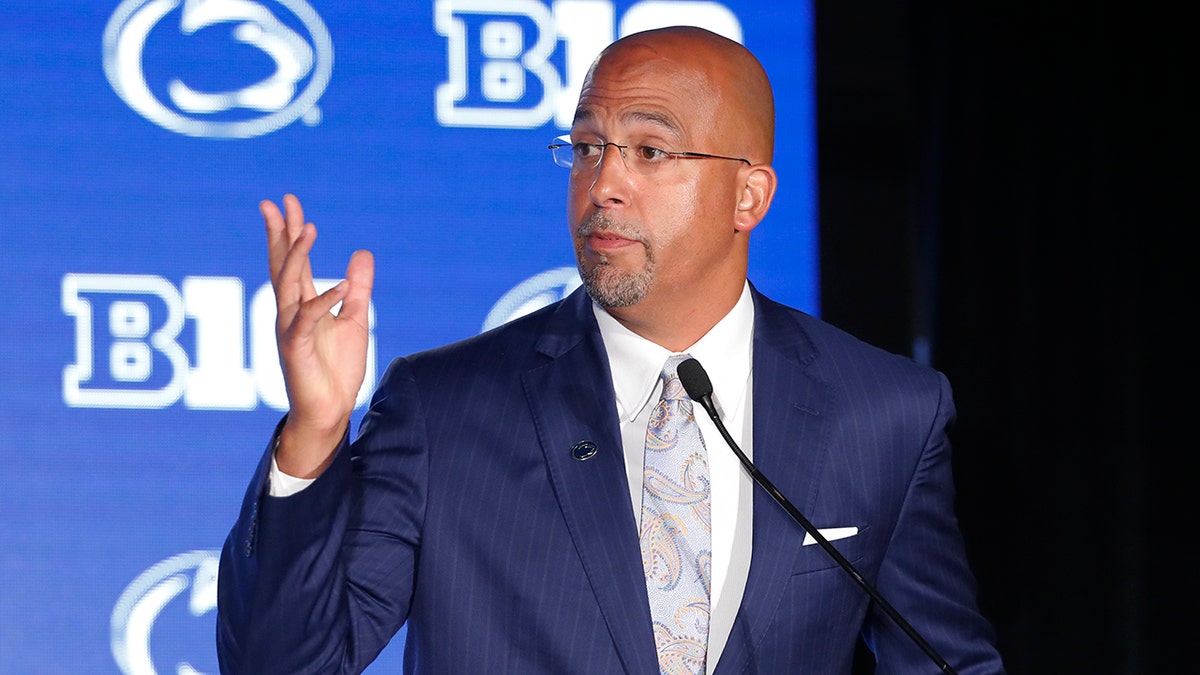
FILE - In this July 19, 2019, file photo, Penn State head coach James Franklin responds to a question during the Big Ten Conference NCAA college football media days in Chicago. The Nittany Lions return just 11 seniors from last season’s 9-4 team that finished third in the Big Ten East. Penn State has 55 first- or second-year players. (AP Photo/Charles Rex Arbogast, File)
"And I just don’t know if that story happens now in college football," Franklin said. "When you ask a kid to change positions now, a lot of them say, ‘Well, I’m just going to transfer and go play somewhere else.'"
The other side of this story is the player Scott will face in the Super Bowl. Bengals quarterback Joe Burrow is the good side of the transfer portal. But he made his move after graduating and spending three years at Ohio State amid injuries before transferring to LSU in 2019. He didn’t just cut and run after, or during, one of his early seasons at Ohio State.
CLICK HERE TO GET THE FOX NEWS APP
"I think there’s so much value in the game in having to deal with a challenging situation and finding a way to overcome it," Franklin said. "And I worry there are going to be less stories like that."











